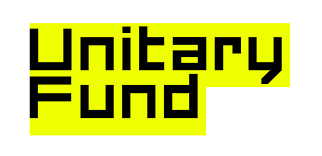For QC to reach its potential it needs stimulus, however small. A fund with its finger on the pulse is doing just that

Movers and Shakers
One obstacle that can define whether a startup/initiative in quantum computing (QC) survives or not is funding. The landscape regarding investment in the space is growing exponentially. Information from TQD’s unique dataset gives a clear indication of this growth in investment in the space since 2006. In a story covered by TQD earlier in the year, I wrote about the movers and shakers in the investment scene.
Investment funds A&E Investments, Bloomberg Beta, Data Collective (DVCV), and Lux Capital have all invested a pretty penny into QC. Other funds, such as Quantum Ventures, World Quant, Quantum Vallet Investments, Quantonation, Summer Capital, and Latent, see it as their mission to focus primarily on QC startups. (For more information on this, click here.)
They obviously predict something many don’t, perhaps?
This means companies already well established or fresh startups on the scene with a well-connected CEO could potentially get significant funding.

But what about the ingenious individuals or group of talented physics undergraduate students with a brilliant quantum project on a platform like GitHub with little or no money to develop it?
Where can they get funding from?
The Unitary Fund
Bangladeshi banker, economist and social entrepreneur Muhammad Yunus did it with microcredit at Grameen Bank which he founded in 1983, the initiative that offers microloans to the impoverished without requiring collateral.
In 2020, the QC world could just have a similar thing going on:
Let me introduce you to the Unitary Fund. The fund, founded by Will Zeng in 2018, is a:
‘Non-profit working to create a quantum technology ecosystem that benefits the most people.’
The Unitary Fund’s main goals are two-fold: to run a microgrant programme and to conduct its own research in the space.
The Unitary’s Fund’s grants are $4,000 for projects that move quantum information sciences to the next level.
Small money, but everyone has to start somewhere.
This could include projects like community workshops, QC software or educational initiatives that serve to enlighten the wider audience to the potential of QC.

So, what about the brains behind the Unitary Fund, William Zeng, what is he all about?
Biography
As of January 2020, he is head of quantum research at Goldman Sachs. That he has managed to set up the fund, as well as work for one of the most famous investment banks on the planet, are two massive feathers in his cap alone, yet his Ph.D. from the University of Oxford in computer science and his real-world experience as head of product at leading QC company Rigetti Computing sets him apart from many of his contemporaries.
‘Because Evolution is Unitary.’
— Unitary Fund
Supporting him is his great team which includes Ryan LaRose, Andrea Mari, Nathan Shammah, and Alexander Levy.
No problem on the human resources front. then.
Sponsors of the Unitary Fund include IBM, Alphabet X, Microsoft, Rigetti, Xanadu, and Zapata Computing.
An impressive list that will surely grow with time.
The grants given out by the fund are interesting too, ranging from an open-source Q# library for quantum RAM to building an open-source library for quantum error mitigation and dynamical decoupling. The grants are age, country and credentials agnostic but with a preference projects are ‘completed within 3–6 months’.
Here are just a select few:
Olivia De Matteo and Sarah Kaiserto build and optimize an open source Q# library for quantum RAM [github].
Dariusz Lasecki builds an open-source QAOA library and examples using Q#.
QCousins supports their mission of welcoming a young and diverse group of programmers into quantum computing. The grant will fund more of their quantum programming workshops and educational materials.
Zeng’s work is clearly cut out. But with a heart and mind in the right place, his Unitary Fund should be there or thereabouts as our QC community moves to new discoveries and challenges.















